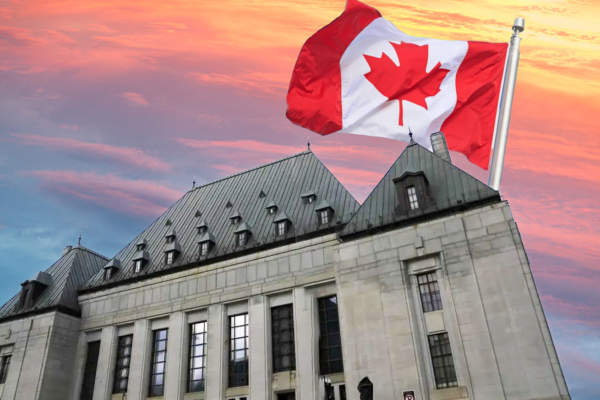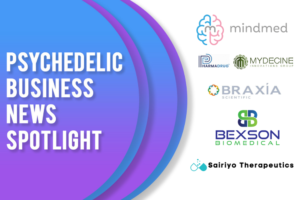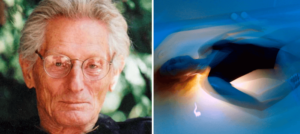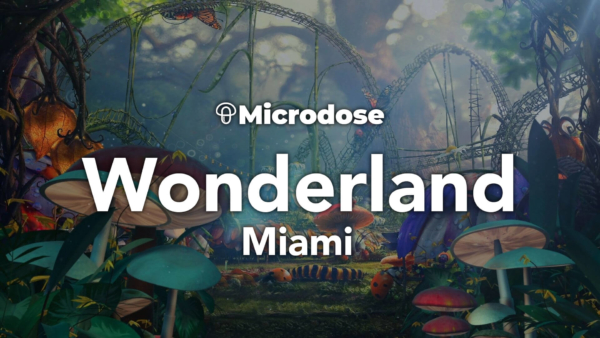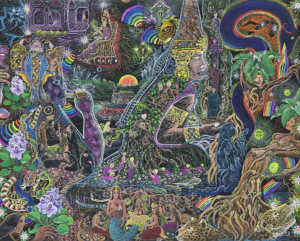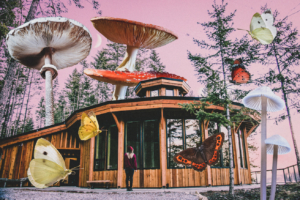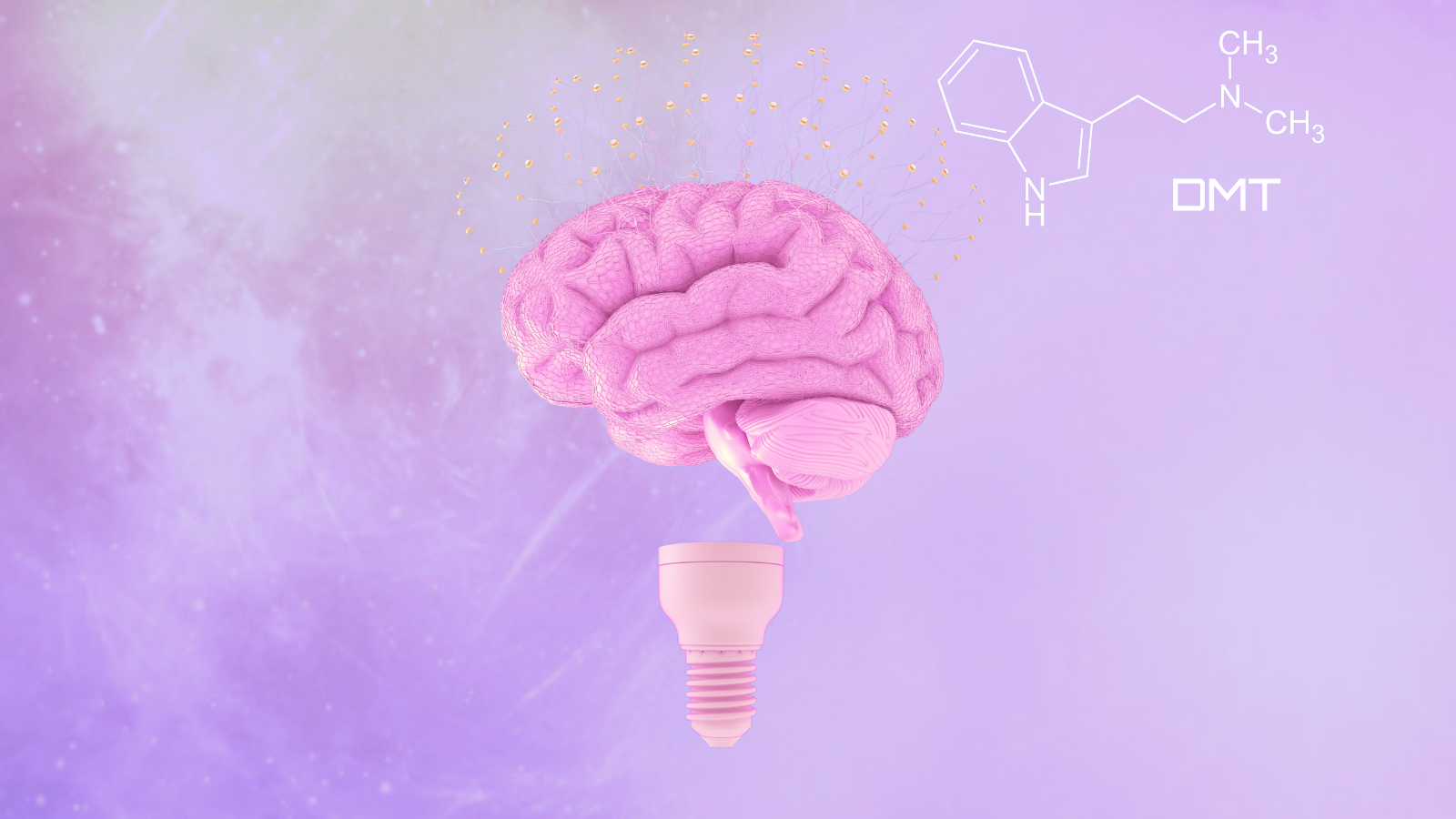
In the quest to discover the most effective psychedelic medicines for treating mental health conditions, some have pointed to DMT as a potential tool for treating depression. Now, a new study published in Nature lends credence to using DMT as a rapid-acting antidepressant.
The study, entitled Exploratory study of the dose-related safety, tolerability, and efficacy of dimethyltryptamine (DMT) in healthy volunteers and major depressive disorder, found that depressive symptoms in those with treatment-resistant Major Depressive Disorder “decreased significantly,” while DMT was found to be “mostly safe and well tolerated.”
In the study, participants were given two separate intravenous doses of DMT. After each dose, depression levels were measured using the HAMD-17 rating scale, which consists of 17 questions. Depending on the answers, a person can score between 0 and 52, with the higher the score, the more depressed they are thought to be. A score of 17 or above signals moderate to severe depression.
The first dose of DMT that patients received was a weaker 0.1 mg per kilogram of body weight, which is not enough for a full DMT experience. Here, though depression rates fell, they did not fall enough for the results to be considered statistically significant. However, 48 hours later, when the dose was increased to 0.3 mg of DMT per kilogram of body weight —which is enough for the full psychedelic experience— the HAMD-17 depression scores were reduced by an average of 4.5 points from the baseline. This was considered a “significant” drop in depression levels. Furthermore, as the test was taken the day after dosing, the results were “rapid.”
In terms of safety —after all this was a Phase 1 trial where the main goal is to evaluate safety— DMT was found to be mostly safe. During the sessions, the psychedelic increased patients’ blood pressure and heart rate, though these issues resolved themselves within 20-30 minutes of the treatment. There was one “serious adverse event,” where a patient experienced “asymptomatic low heart rate and blood pressure.” However, it was later revealed that this patient had not disclosed to the researchers that they had medical history of many such episodes. The patient did not suffer any long term consequences from the treatment.
To be clear, this was a small Phase 1 study, with only 10 participants —7 of whom had treatment-resistant Major Depressive Disorder, and 3 of whom were healthy. Furthermore, it was “open label,” meaning that it was conducted without a placebo arm. Finally, results were only measured one day after the administration of DMT, so we have no long-term safety or efficacy data. These limitations restrict how much we can extrapolate from the data, no matter how positive it is. Nevertheless, these hopeful results justify larger and more controlled clinical studies.
You may also like: How to Smoke DMT in 5 Easy Steps
Diving deeper, there were several unique aspects of the trial that make it a valuable case study for psychedelic medicines. The first is the lack of structured psychotherapy accompanying the DMT treatment. While it is true that patients “met with the study psychiatrists for a preparatory session of about 45 min” before treatment, this was less of a therapy session and more of an informational one, teaching the patients what to expect while on a dose of DMT. Likewise, after the sessions, for about two hours, there was a debrief with the patient. But again, here, there was no structured integration therapy session.
The next interesting facet of the trial was its setting. Whereas most trials go out of their way to create a calming setting for psychedelic therapy, this trial did the opposite. Instead of a comfy room with soft lights and a cozy couch, it took place in a regular hospital room, uncomfortable cot and all.
Taking the two above factors together, we can make a couple of inferences. The first revolves around the potential use case of such a therapy. While having a serene environment combined with hours of therapy may be desirable in many situations, it may not be possible in an emergency. If these results can be replicated and proven, one could imagine a future where DMT treatment could be offered to those hospitalized for fear that they may attempt to take their own life. In a situation like this, where immediate intervention is required, having a treatment that can rapidly reduce depressive symptoms could be a life saver.
The next inference is in regards to the cost of the intervention. Psychedelic therapy, as it is predominantly being studied, is extremely expensive. From the lengthy preparation and integration therapy sessions, to the 6 to 8 hour psychedelic session —assuming psilocybin or LSD is being used— the astronomical therapy costs could price out many lower income individuals. Comparatively, in this trial the entire process was around 3 hours, which would make it much more affordable, and therefore accessible.
This speaks to the reason that many people —and companies— are bullish on the prospect of using DMT as a mental health medicine, as compared to psilocybin. While the subjective effects are similar —albeit more intense— the experience lasts only a fraction of the time. Typically the entire DMT “trip” is finished in around 20 minutes, as compared to 6-8 hours with psilocybin or LSD. If they were equally effective in treating conditions like depression, DMT would obviously be the more effective and efficient tool.
That being said, while the results of this trial were “significant” and “rapid,” the 4.5 point drop from the baseline was not as effective as previous psilocybin for depression trials. As Psychedelic Alpha points out, a similar open-label study of psilocybin which attempted to treat Treatment-Resistant Depression, conducted by the Imperial College London, “reported a difference from baseline of -14.0 on HAM-D.”
Despite this, we do not have enough data to conclude that DMT is less effective than psilocybin in treating depression. This is mainly because the two trials were so different. The Imperial College study included psychological support before, during, and after each psychedelic session, and the setting was tailored to be comfortable. We do not know how effective DMT would have been under a similar structure.
Luckily, we will soon be getting more data, as Small Pharma (TSXV: DMT, OTCQB: DMTTF) is currently conducting a Phase 2a DMT trial for Major Depressive Disorder. Likewise, Cybin (NEO:CYBN, NYSE American:CYBN) recently acquired a Phase 1 DMT trial from Entheon, and will eventually launch a phase 2a trial using CYB004, their next generation DMT. If these trials are successful, then DMT will move one step closer to leaving clinical trials and becoming a legal medicine.
